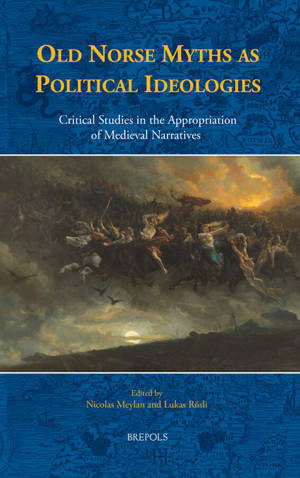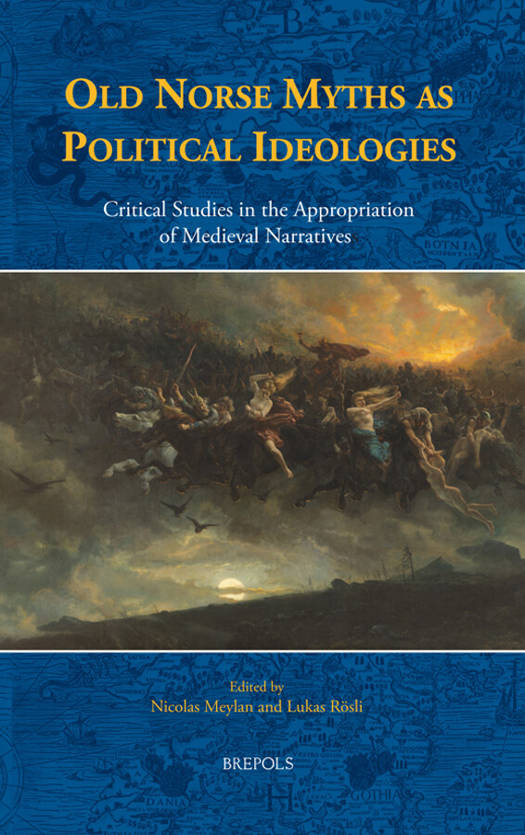
- Afhalen na 1 uur in een winkel met voorraad
- Gratis thuislevering in België vanaf € 30
- Ruim aanbod met 7 miljoen producten
- Afhalen na 1 uur in een winkel met voorraad
- Gratis thuislevering in België vanaf € 30
- Ruim aanbod met 7 miljoen producten
Zoeken
Old Norse Myths as Political Ideologies
Critical Studies in the Appropriation of Medieval Narratives
Nicolas Meylan
Hardcover | Engels
€ 84,80
+ 169 punten
Omschrijving
The mythology of the Norse world has long been a source of fascination, from the first written texts of thirteenth-century Iceland up to the modern period. Most studies, however, have focused on the content of the narratives themselves, rather than the broader political contexts in which these myths have been explored. This volume offers a timely corrective to this broader trend by offering one of the first in-depth examinations of the political uses of Norse mythology within specific historical contexts. Tracing the changing interests and usages of Norse myths from the medieval period, via the nineteenth century and the importance of ancient Norse beliefs to both the Romantic and volkisch movements, up to the co-option of mythology and symbolism by political groups across the twentieth and early twenty-first centuries, the papers gathered here offer new and critical insights into the changing nature of historiography and the political agendas that Old Norse myths are made to serve, as well as shedding new light on the way in which 'myths' are conceptualized.
Specificaties
Betrokkenen
- Auteur(s):
- Uitgeverij:
Inhoud
- Aantal bladzijden:
- 260
- Taal:
- Engels
Eigenschappen
- Productcode (EAN):
- 9782503588216
- Verschijningsdatum:
- 22/10/2020
- Uitvoering:
- Hardcover
- Formaat:
- Genaaid
- Afmetingen:
- 163 mm x 246 mm
- Gewicht:
- 576 g

Alleen bij Standaard Boekhandel
+ 169 punten op je klantenkaart van Standaard Boekhandel
Beoordelingen
We publiceren alleen reviews die voldoen aan de voorwaarden voor reviews. Bekijk onze voorwaarden voor reviews.







